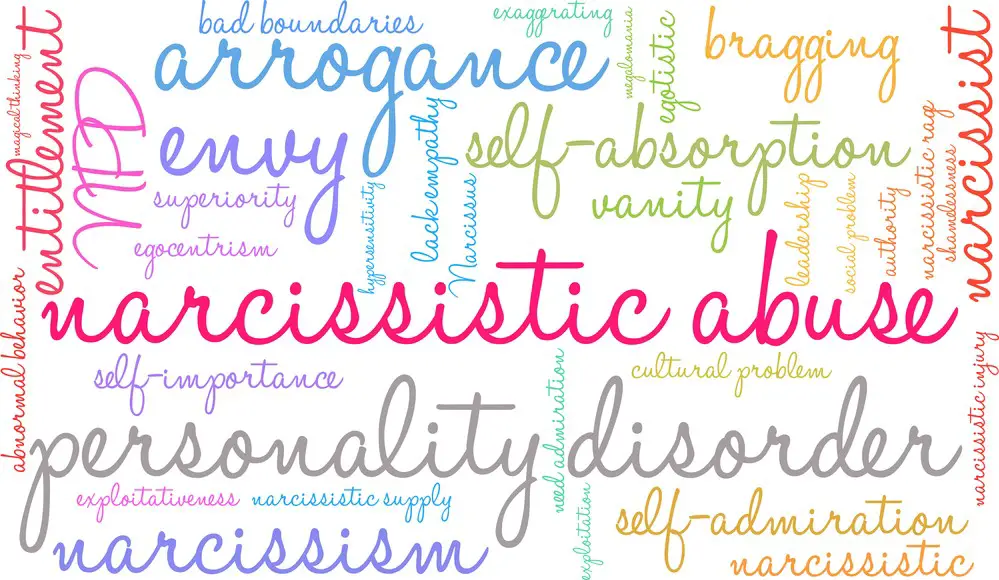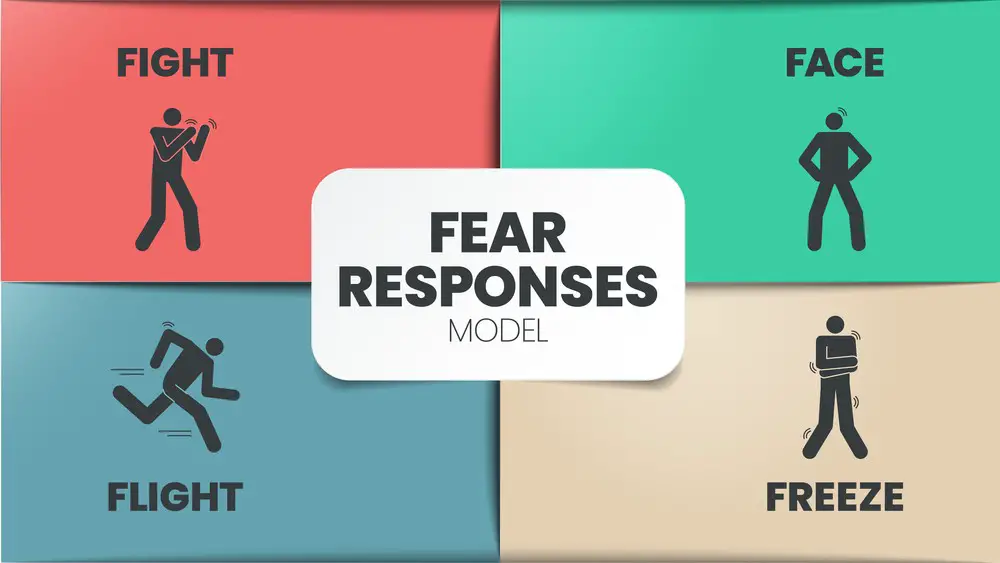As a BetterHelp affiliate, we receive compensation from BetterHelp if you purchase products or services through the links provided
Are you an ex of a narcissist? Do you feel like your relationship ended abruptly without explanation and left you feeling confused and betrayed? Unfortunately, it’s not uncommon for narcissists to treat their exes in confusing ways. They often engage in tactics such as gaslighting, triangulation, discarding, and projection – all designed to manipulate the emotions of their former partners. In this article, we’ll explore how narcissists treat their exes so that you can be prepared if it ever happens again.
Table of Contents:
- Gaslighting
- Discarding
- Triangulation
- Projection
- Moving On
- 1. Take Care of Yourself:
- 2. Create Healthy Boundaries:
- 3. Stay Positive:
- 4. Spend Time With People Who Love You:
- How Do Narcissists Treat Their Exes?
- Abusive Behaviour:
- Texts & Meetings:
- Self-Esteem Building:
- Why Are Narcissists Obsessed With Their Exes?
- Narcissistic Tendencies:
- Manipulation Tactics:
- Fear of Rejection:
- Insecurity Issues:
- FAQs
- How do narcissists treat their exes?
- Do narcissists still love their exes?
- What do narcissists do after hurting their exes?
- Do narcissists keep their exes close?
- Conclusion
Gaslighting

Narcissists are master manipulators who use “gaslighting” to get what they want. Gaslighting is an insidious form of emotional abuse that can leave victims confused, disoriented, and helpless. It involves the narcissist convincing their ex-partner that they are wrong or crazy to gain control over them.
Narcissists treat people as objects for selfish reasons rather than care about people’s feelings. Rather than show empathy, narcissists may resort to destructive behavior to maintain a sense of superiority. Narcissists may resort to intimidation tactics such as belittling and threatening their former partners if they do not get what they want.
The honeymoon phase is another tool in the narcissist’s belt to manipulate and control their ex. During this period, they shower them with compliments and affection as a source of narcissistic supply—a boost for their ego while keeping their ex emotionally dependent on them so that manipulation becomes easier when things go south.
When a relationship ends or doesn’t go according to plan, some narcissists stay friends with their former partners just long enough until they find new sources of narcissistic supply (i.e., attention). This allows them to keep tabs on what their former partner is doing and seek revenge if necessary—all while pretending that nothing ever happened between them.
Gaslighting is a tactic narcissists use to manipulate and control their exes, making them doubt themselves and question reality. Moving on, the next heading discusses another way in which narcissists treat their exes: discarding.
Discarding
Discarding is a common trait of narcissists and refers to ending relationships abruptly without explanation or closure. This often occurs after the honeymoon phase has ended when they no longer feel as though their partner can provide them with a narcissistic supply – attention, admiration, and adoration.
Narcissists lack empathy and don’t care about other people’s feelings. They may stay in a relationship for selfish reasons, such as an ego boost or seeking revenge on past relationships that have wronged them. Narcissists talk down to their partners, emotionally manipulate them and use dark personality traits like gaslighting to make themselves feel superior. When this isn’t enough for them, they will discard their ex-partner without remorse or consideration for how it makes the other person feel.
The narcissistic abuse cycle usually begins with idealization followed by devaluation and then discarded once the narcissist has found another source of narcissistic supply from someone who gives them more attention than you do now. It’s important to remember that even if your narcissistic partner returns after some time apart, it doesn’t mean they have changed; they are just looking for new sources of validation since you’ve become “old news.”
When narcissists experience narcissistic injury, they may discard their partners rather than take responsibility for their emotions like a mature adult would. This can occur if something triggers their fragile egos or causes them emotional pain (real or perceived). The narcissist may return when they believe they can escape the consequences of their actions, exploiting the desperation of their former partner not to be alone.
Dismissal, a typical approach deployed by narcissists to reduce the value of and dispose of their exes, can be immensely detrimental for those on the receiving end. Triangulation is another tool in the narcissistic arsenal that can be just as damaging for former partners.
Triangulation

Narcissists use triangulation to make their exes feel jealous and insecure by involving other people in the relationship. Triangulation is a tactic narcissists use to manipulate, control, and exploit their victims for attention or narcissistic supply. For example, they may involve an innocent third party, such as a friend or family member who has no idea what’s going on behind the scenes. Narcissists will often talk about their ex-partner with this person to gain sympathy or admiration from them while also making their ex feel threatened that they could be replaced.
Narcissists will often keep former partners in their sphere of influence, utilizing mind games and flirting with other people around them to maintain control. In addition, they may withhold information from you or attempt reconciliation when it serves their purposes; all these actions stem solely from the need for narcissistic supply rather than genuine feelings.
One partner may attempt to manipulate the relationship by blaming their issues and behaviors on the other to avoid responsibility while gaining sympathy from a third party. For example, the narcissist might talk badly about their partner but then turn around and blame them whenever things go wrong – essentially creating an us vs. them dynamic between two people who should be working together as a team.
The narcissist’s lack of empathy means they will not hesitate to bring up past relationships with other people during arguments to make themselves seem more desirable than their current partner and feed their fragile ego’s need for validation from outside sources. This practice is known as “narcissistic supply,” The narcissist will use it regardless of how much hurt they cause.
Through triangulation, those with NPD seek to increase their power and bolster their egos by any means necessary – even if it involves damaging another’s self-worth.
Triangulation is a tactic narcissists use to manipulate their exes into feeling confused and powerless. As a result, they can maintain control over the other person by projecting negative feelings onto them. Next, we will explore how projection plays a role in narcissistic behavior toward former partners.
Projection
Narcissists are masters of projection. They project their flaws onto their exes to avoid taking responsibility for themselves. Narcissists can maintain control over the situation by projecting their flaws onto others and manipulating people’s feelings without facing repercussions.
Projection involves the narcissist accusing their ex-partner of things they have done or thought about doing themselves. For example, a narcissist may attempt to deflect from their wrongdoing by accusing their partner of cheating, even if they have done so. Conversely, if a narcissist is too afraid to end the relationship themselves, they may project their desire onto their partner and accuse them of wanting out.
Narcissists often lack empathy and can be emotionally manipulative, yet they attribute these negative traits or behaviors to others rather than owning up to them. This is especially evident when their past relationships end suddenly due to narcissistic injury. Instead of admitting their pride got in the way, they’ll quickly point fingers at the other person for supposedly not trying hard enough or caring enough. Critical phrases like “trying hard” and “caring enough” are only smoke screens designed to deflect from the truth; deep down inside, narcissists know precisely what caused the relationship’s demise but prefer playing a blame game over taking responsibility for themselves.
Understanding how projection works can help protect you from becoming another victim in a narcissistic abuse cycle – especially since some dark personality traits can sometimes be complex to recognize within ourselves. For example, dealing with someone who holds you responsible for things out of your control and shirks accountability could indicate something more insidious.
Projecting can be a form of self-defense against emotions that are too hard to process, yet it’s essential to identify and accept them for successful healing. Moving On involves understanding the dynamics between you and your ex-partner so that you can heal from any pain or trauma experienced during the relationship.
Moving On

Leaving a narcissistic relationship can be emotionally challenging, but getting through this difficult period is possible. Remind yourself that you are not to blame and others have gone through the same experience. To aid in navigating the aftermath of a narcissistic relationship, consider these strategies:
1. Take Care of Yourself:
Taking care of yourself is essential during this process. Maintain a balanced lifestyle with nutritious meals, physical activity, and adequate rest. Maintaining good self-care habits is paramount for recovery from a narcissistic relationship, both mentally and physically; thus, seeking professional help may be beneficial. Consider talking with a therapist or counselor specializing in narcissistic relationships if needed.
2. Create Healthy Boundaries:
Setting healthy boundaries is crucial when moving on from a narcissist; keep them in mind whenever interacting with them or anyone involved (friends, family members). Don’t let them manipulate or guilt trip you into doing something that doesn’t align with what’s best for your well-being; remember that their opinion does not matter more than yours does.
3. Stay Positive:
While it may seem impossible at times, try to focus on all the positive things about yourself rather than dwelling on negative thoughts caused by the experience of being with someone like this person was before they changed course and became abusive/manipulative towards us. Remembering how strong we were throughout our journey will help us stay focused on self-love instead of regretting decisions made while under duress due to gaslighting tactics employed by our former partner(s).
4. Spend Time With People Who Love You:
Surrounding ourselves with people who love us unconditionally can do wonders for our mental health during such an emotional time—they provide unconditional support, which helps heal wounds inflicted by toxic relationships faster than anything else could ever do. So make sure to spend quality time with these individuals often so that we never forget just how much worth there truly is within each of us, no matter what happened before now or what might happen next down life’s path ahead.
Lastly, know that although it may take some time, healing happens. As long as we continue making small steps forward every day, eventually, we will find ourselves back at square one, ready to live life anew, filled with hope and confidence once again.
How Do Narcissists Treat Their Exes?
Abusive Behaviour:
Narcissists will often use abusive tactics to keep their exes under control. For example, they may say hurtful things such as “You are nothing without me” or “I can do better than you.” These comments are meant to make the person feel small and worthless for that to remain within the narcissist’s power. They may also try to manipulate their ex by making them believe they still need them to survive or be happy.
Texts & Meetings:
In addition, a narcissist may attempt to stay present in an ex’s life by sending multiple texts and even trying to meet up with them “by accident.” This is done so that if the person responds, it gives the narcissist hope that they can maintain some control over their former partner. It is essential for those broken up by a narcissist not to engage with these messages and meetings as it could lead back into an unhealthy relationship dynamic.
Self-Esteem Building:
The best way for someone who has gone through a breakup with a narcissistic partner is to focus on building self-esteem and self-worth. Remind yourself of all your strengths and successes before this person came into your life; remember that you were doing just fine on your own. With enough practice, confidence will come naturally, which will help protect from further manipulation from the narcissist’s side.
Finally, some experts suggest that many narcissistic behaviors stem from underlying insecurities – such as feeling inferior to others and thus striving (often fruitlessly) for admiration, validation, or approval. Whereas the average person may not act out when experiencing these emotions, individuals with Narcissistic Personality Disorder tend to react differently – becoming excessively possessive and controlling of someone they believe belongs solely to them; consequently establishing detrimental dynamics within a relationship which can lead to destruction down the line.
Why Are Narcissists Obsessed With Their Exes?
Narcissistic Tendencies:
Narcissists tend to be obsessed with their exes. This obsession is usually due to a fear of abandonment and an inability to move on from the relationship. Narcissists often cannot accept that their ex has moved on, so they become fixated on them to regain control and validation. This can lead to stalking, harassment, and even malicious gossip about the ex for the narcissist to feel better about themselves or get revenge for perceived wrongs done by the ex-partner.
Manipulation Tactics:
A narcissist’s obsession with their ex can also manifest through manipulation tactics such as guilt-tripping, gaslighting, and playing mind games. They may use these tactics to make their ex feel guilty or inferior so that they will stay in contact with them or agree to do things that benefit the narcissist’s agenda. For example, a narcissistic person may try and manipulate an ex into giving them money or using guilt trips when they don’t want anything else from them but attention. These manipulative tactics can be extremely mentally and emotionally damaging for those involved.
Fear of Rejection:
Another reason why narcissists obsess over their former partners is because of fear of rejection; if someone rejects you once, it makes it harder for you to trust people again and make it more difficult for you to open up your heart again after being hurt previously. So in this sense, obsessive behavior towards an old partner could stem from insecurity rather than arrogance – although this doesn’t excuse any form of abuse caused by such behaviors.
Insecurity Issues:
Experts suggest that much of narcissistic behavior may be attributed to underlying issues concerning insecurity, such as feeling inferior compared to others and trying desperately (but often in vain) to garner admiration, validation, or approval. While most people would not act out this way upon experiencing feelings of inadequacy, those suffering from Narcissistic Personality Disorder tend to respond differently – for example, by becoming overly possessive and controlling towards someone they believe exclusively belongs only to them; thus creating an unhealthy dynamic within the relationship which could lead potentially disastrous consequences further down the line.
FAQs
How do narcissists treat their exes?
Narcissists treat their exes with disdain, often attempting to control or manipulate them into returning. In addition, they may seek to undermine their ex’s reputation by disseminating untruths and gossip, thus trying to tarnish the other person’s image. Narcissists are also known for cutting off communication abruptly without warning and refusing to acknowledge wrongdoing. Ultimately, narcissists use tactics like these to maintain power over their former partners while avoiding responsibility for their actions.
Do narcissists still love their exes?
Narcissists may struggle to move on from former partners, even if their feelings have changed, due to a craving for admiration and attention. This is because narcissists are driven by the need for admiration and attention from others so they may cling to past relationships as a source of these things. Sometimes, this clinging behavior may be driven by a desire to maintain power and control over the relationship. Ultimately, it’s impossible to answer whether or not narcissists still love their exes definitively; however, any lingering feelings are likely more about maintaining power than genuine emotion.
What do narcissists do after hurting their exes?
Narcissists often react to the pain they have caused their exes in various ways. For example, narcissists may attempt to deflect responsibility for their actions by blaming their ex or using manipulative tactics like gaslighting and stonewalling. In some cases, narcissists will also use gaslighting or stonewalling to avoid responsibility for hurting someone else.
Do narcissists keep their exes close?
Narcissists typically do not keep their exes close. Narcissists tend to be emotionally manipulative and view relationships as transactional, so they will likely discard an ex once the relationship has served its purpose. They may also use their former partners as a source of admiration or validation, leading them to maintain contact to receive these benefits without real emotional attachment.
Conclusion
Narcissists treat their exes in various ways that can be difficult to comprehend. For example, they may initially shower them with attention and affection during the honeymoon phase before gaslighting, discarding, triangulating, or projecting onto them. Those affected by a narcissistic individual need to grasp these behaviors to progress away from this ordeal without enduring psychological harm.
Take the time to learn about narcissism and its effects on relationships. By visiting Rest Equation’s advice site today, you can better manage your interactions with an ex-partner who may have narcissistic tendencies.
Also Read
Divorcing a Narcissist? Here’s What You Need to Know
- 3 Ways Wearing a Hat Can Help Lower Your Stress Levels - April 19, 2025
- Breaking the Silence: Why Men’s Mental Health Matters More Than Ever - April 15, 2025
- How to Transform a Home’s Patio Space into a Relaxing Space - March 23, 2025
This site contains affiliate links to products. We will receive a commission for purchases made through these links.




